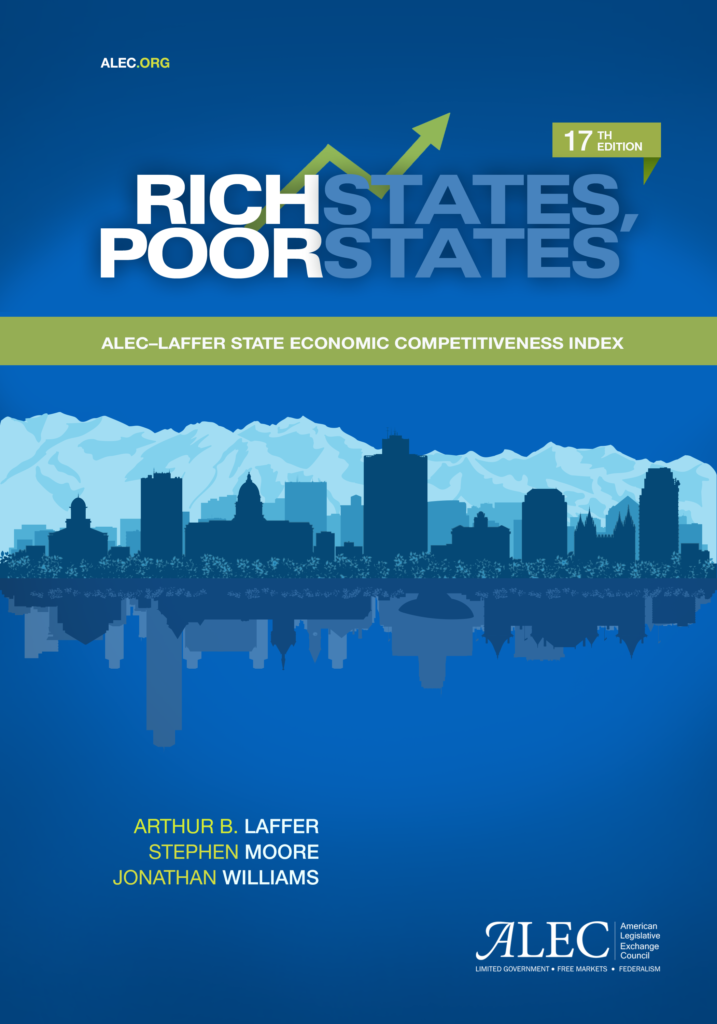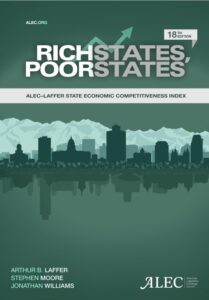Alabama Governor Robert Bentley’s many racing metaphors in his State of the State address attempted to convey his commitment to an Alabama with better jobs, economic growth and education. But the Yellowhammer State’s track record leaves much to be desired.
The governor’s speech included calls for expanded pre-kindergarten programs, more infrastructure enhancements and additional tax reform. He also renewed last year’s proposal for new prison construction to ameliorate overcrowding problems.
The governor noted, “Alabama’s labor force is the largest it’s been in five years.” Governor Bentley also expounded on the results of the “ATRIP” program—the largest investment in roads and bridges in state history—calling it “Alabama’s Infrastructure Success Story.” Through ATRIP’s state and local partnerships, Alabama workers repaired and replaced many hundreds of roads and dangerous bridges. The governor recalled that when he took office the state was “essentially broke, savings accounts had been wiped out and federal stimulus dollars were gone.” In an effort to trim the size of state government and reduce the tax burden, his administration embarked on an ambitious effort to save taxpayers one billion dollars from 2012 until the end of his final term. He proudly announced that reforms have “now saved of $1.2 billion annually.” While the governor may have achieved some savings, state expenditures show the reforms have been largely tepid.
Even over the prior two years, overall spending has grown by nearly $1.5 billion. Total state expenditures (including capital and federal funds) totaled $24.99 billion in fiscal year 2014, $25.29 billion in fiscal year 2015, and estimated at $26.47 billion for fiscal year 2016 (an increase of 5.9 percent in just two years). Excluding federal funds, state spending increased from $15.63 billion in fiscal year 2014 to 15.93 billion in fiscal year 2015, to an estimated $16.339 billion in fiscal year 2016 (a 4.5 percent increase in just two years). Any notion of spending reform does not hold up to the data. Alabama ranks only in the middle of the pack (24th nationally) in terms of positive recent legislative tax changes (according to the 9thedition of the ALEC report Rich States, Poor States). As such, they’re unlikely to strengthen Alabama’s relative economic competitiveness. More meaningful tax reform is needed.
The governor also announced a new task force to study the impact of repealing the state’s sales tax on groceries. Combined with local grocery sales taxes, this adds nearly 10 percent to each family’s grocery bill. In fact, only 17 states impose a higher overall sales tax burden on consumers. Of course, any sales tax cuts should center on lower taxes on all goods and services rather than on just one politically expedient category. The state budget continues to grow too quickly, contributing to the problem.
The governor looked to the future, laying out his strategy to expand opportunity and solve long-standing obstacles to well-being. Alabama’s “Great State 2019 Plan” aims to improve education and workforce development overall with a focus on the state’s most rural counties. Bentley also promised an additional $20 million to grow the state’s pre-kindergarten program. He noted, “In study after study, a four-year-old enrolled in one of our high-quality first class Pre-K Programs misses fewer school days, they are much less likely to be retained, or held back, in higher grades and most importantly they are ready for kindergarten.” More money is not usually correlated to higher student achievement, however, and any additional funding for education should be tied to performance measures.
Concluding, the governor renewed his plea for the construction of new prisons to help reduce inmate overcrowding and called for more support in curbing the state’s opioid epidemic. The $800 million prison construction proposal will likely be the flagship of Bentley’s agenda this year, but its hefty price tag (and debt) for the four new facilities is sure to get pushback.
Taxpayers will bear the burden for the continued spending-laden policy articulated by the governor. In 2012, Alabama’s Economic Outlook ranked 21st in the ALEC report Rich States, Poor States. Four editions later, the state is again ranked 21st. Without substantial reform, little chance of improvement exists. Governor Bentley and lawmakers must focus on meaningfully reforming government and enacting substantial pro-growth tax relief. For instance, the state’s personal income tax may rank 13th lowest in the nation, but the state should look at confronting its remaining tax burden, which is in the highest 10 nationally. Further, neighboring states Mississippi and Tennessee have both given substantial tax relief to their residents over the past two years, earning the title “Best of the Best” in the ALEC State Tax Cut Roundup. Mississippi accomplished a fundamental tax reform totaling some $450 million in cuts, while Tennessee eliminated the Hall Income Tax—both are continually raising the regional bar for economic competitiveness, and without change, Alabama will continue to fall behind. A friendlier environment in which to engage in commerce and create wealth is needed.




